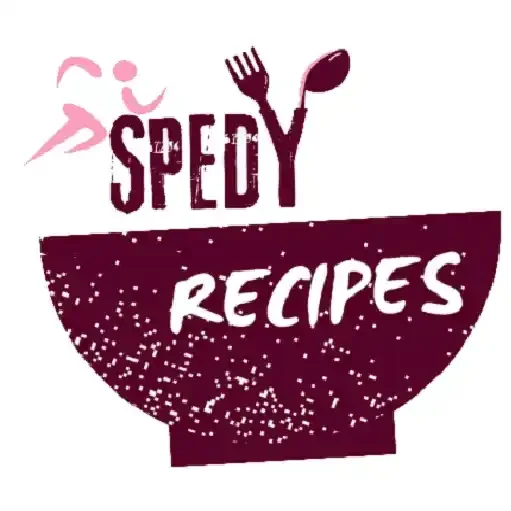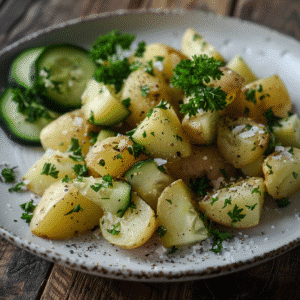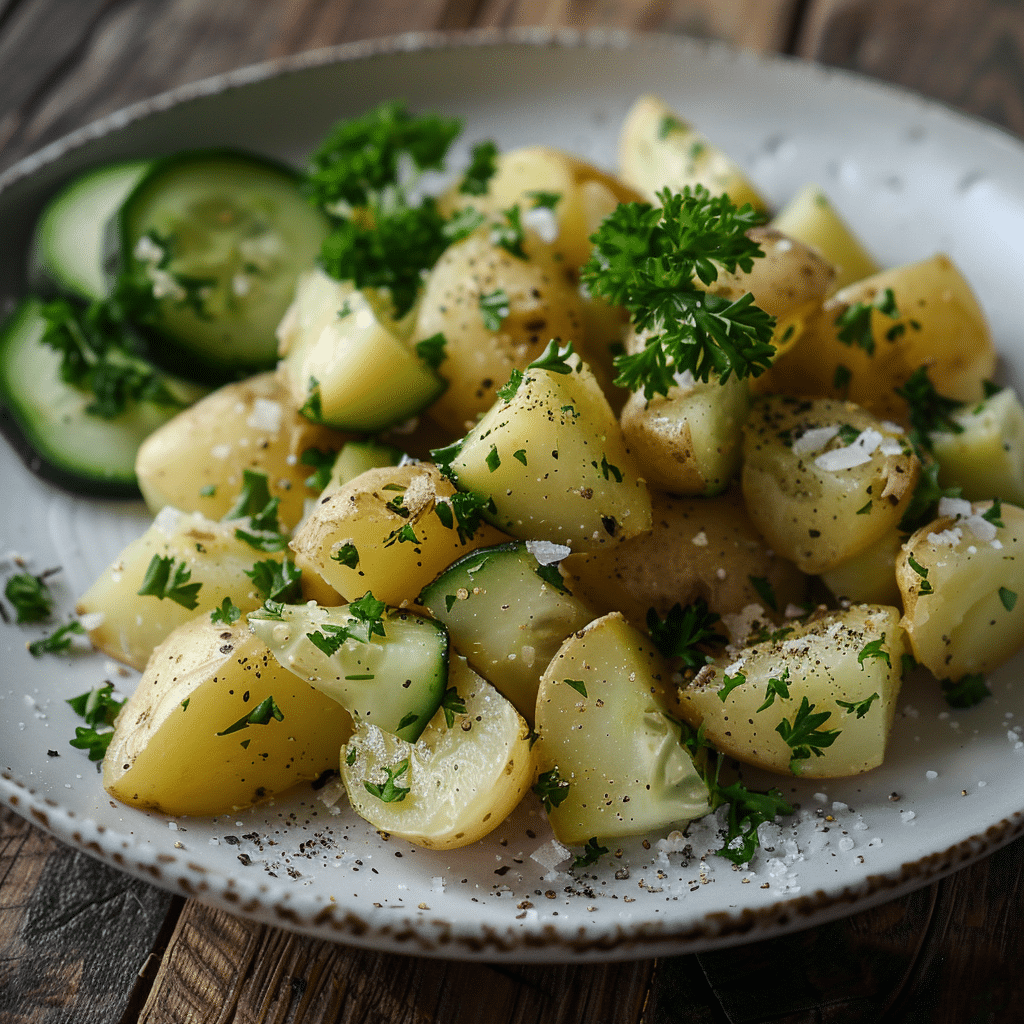
There’s something deeply satisfying about a bowl of warm, seasoned potatoes. When you’re craving comfort food that’s clean and nourishing, potato fasting recipes are a gentle go-to. Perfect for short-term resets or mono-meal days, these simple dishes are easy on digestion, naturally filling, and full of familiar flavor.
Whether you’re easing into a fast or just want to keep things simple for a few days, these potato fasting recipes bring balance and comfort to your plate.
Table of Contents
Why Potato Fasting Recipes Work
- Made with whole, unprocessed ingredients
- Low in fat, high in fiber and nutrients
- Naturally satisfying and easy to digest
- Great for 1–3 day resets or gentle detoxes
- Versatile with herbs, spices, and simple veggies
🍽️ 3 Nourishing Potato Fasting Recipes to Try
1. Crispy No-Oil Roasted Potatoes
Ingredients:
- 4 medium Yukon Gold potatoes, diced
- 1 tsp smoked paprika
- ½ tsp garlic powder
- Salt and pepper to taste
- Fresh parsley, chopped (optional)
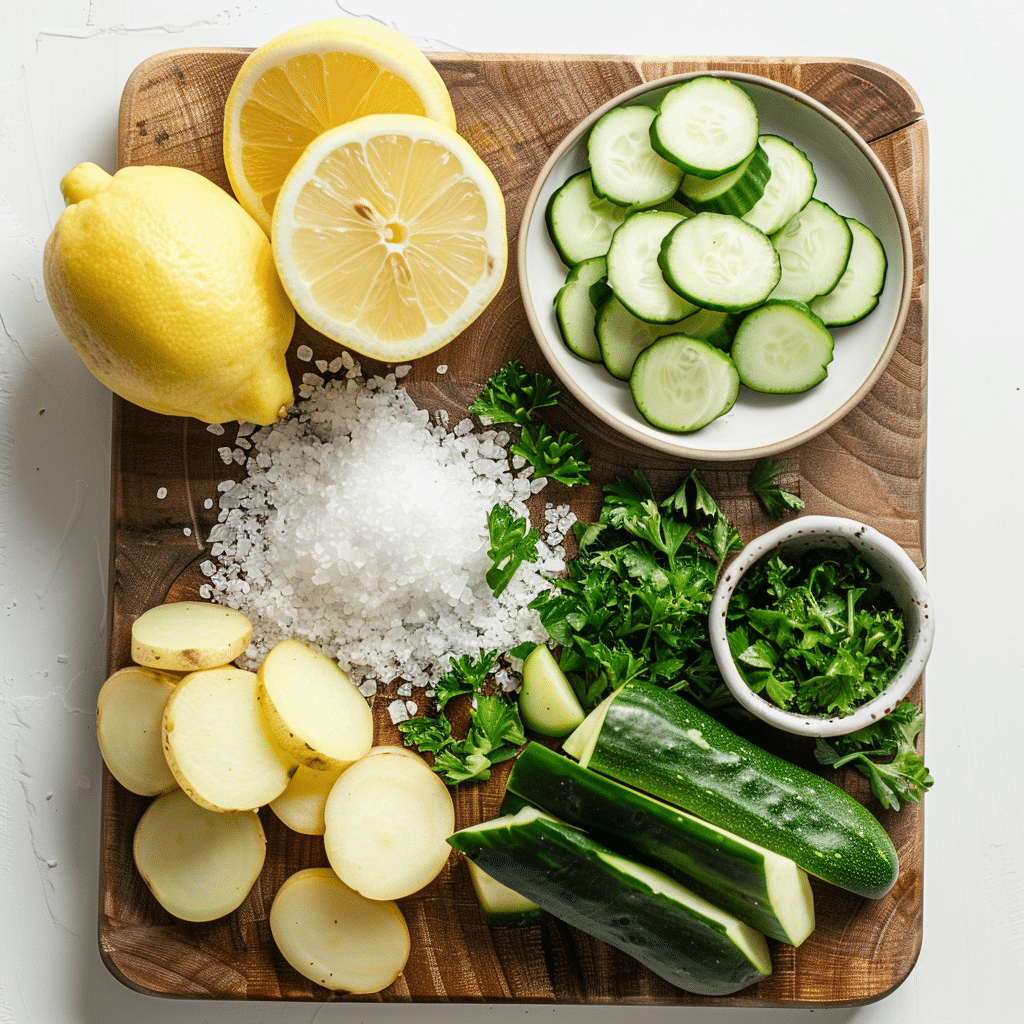
Directions:
- Preheat oven to 400°F (200°C).
- Toss potatoes in spices (no oil needed).
- Spread on parchment-lined baking sheet.
- Roast for 35–40 minutes, flipping halfway.
- Sprinkle with parsley and enjoy warm.
⏱️ Prep Time: 5 min
🔥 Cook Time: 40 min
📌 Total Time: 45 min
🍽️ Serves: 2
⚡ Calories: ~180 per serving
2. Mashed Potatoes with Steamed Greens
Ingredients:
- 3 large white potatoes, peeled and cubed
- ½ cup hot veggie broth (or unsweetened almond milk)
- Salt and black pepper
- Steamed spinach, broccoli, or kale
Directions:
- Boil potatoes until soft, then drain.
- Mash with broth until creamy.
- Season lightly.
- Serve with warm steamed greens on the side.
⏱️ Prep Time: 10 min
🔥 Cook Time: 20 min
📌 Total Time: 30 min
🍽️ Serves: 2
⚡ Calories: ~220 per serving
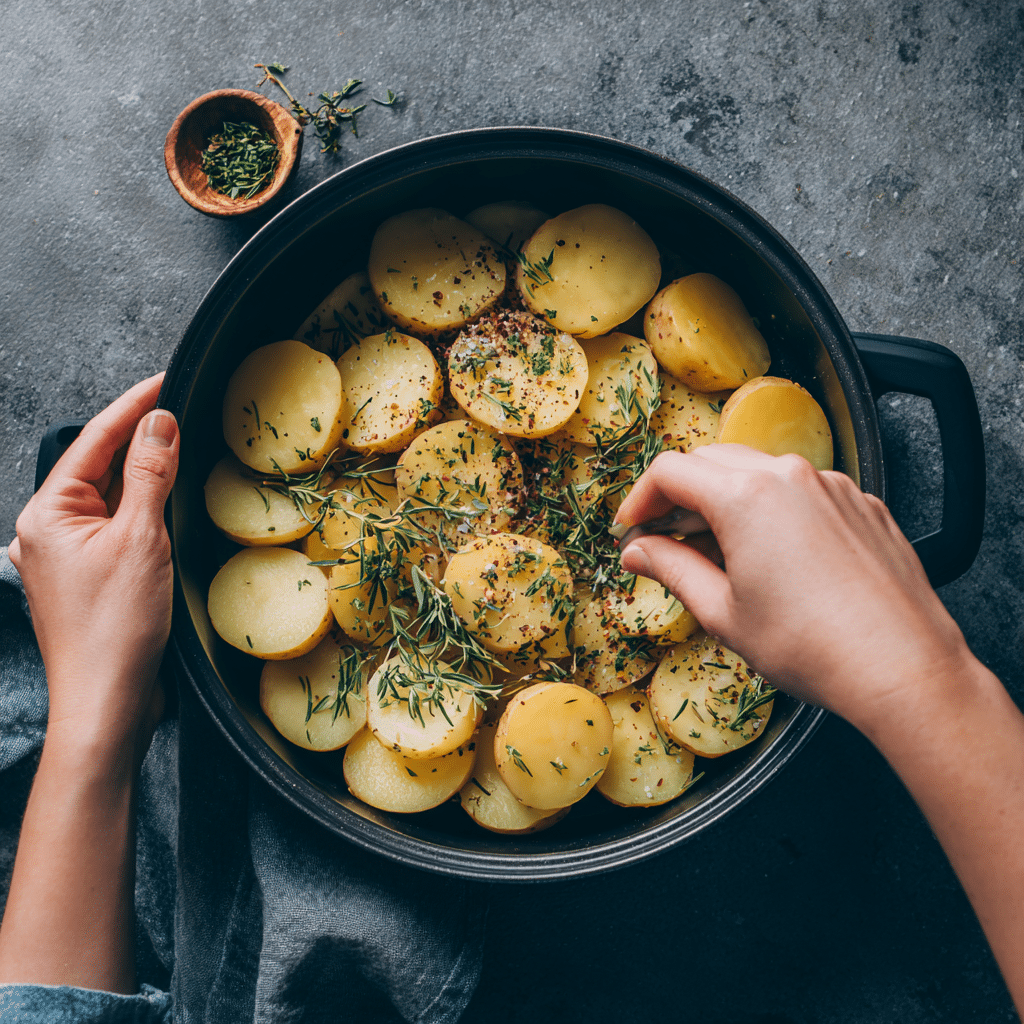
3. Air-Fried Seasoned Potato Wedges
Ingredients:
- 2 large Russet potatoes, sliced into wedges
- ½ tsp onion powder
- ½ tsp smoked paprika
- Salt to taste
Directions:
- Preheat air fryer to 375°F (190°C).
- Toss wedges with seasonings.
- Air fry for 15–18 minutes, shake halfway.
- Serve with fresh herbs or lemon juice.
⏱️ Prep Time: 5 min
🔥 Cook Time: 18 min
📌 Total Time: 23 min
🍽️ Serves: 2
⚡ Calories: ~160 per serving
🔄 Ways to Serve Potato Fasting Recipes
Even when you’re following a simple plan, there’s room for variety:
- Swap white potatoes for red, gold, or sweet varieties
- Chill and serve for extra resistant starch (great for gut health!)
- Add fresh herbs like rosemary or dill for more depth
- Serve with lemon, mustard, or a splash of vinegar for a tangy lift
🧂 Pro Tips for Potato-Based Fasting
- Use parchment or air fryers instead of oil
- Stick to clean seasonings no sauces, no sugar
- Drink plenty of water to support digestion
- Batch cook your potato fasting recipes to stay on track
🥡 How to Store & Reheat
- Refrigerate leftovers in glass containers up to 4 days
- Reheat in an oven or air fryer to keep the texture crisp
- Avoid microwaving mashed varieties use stovetop heat instead
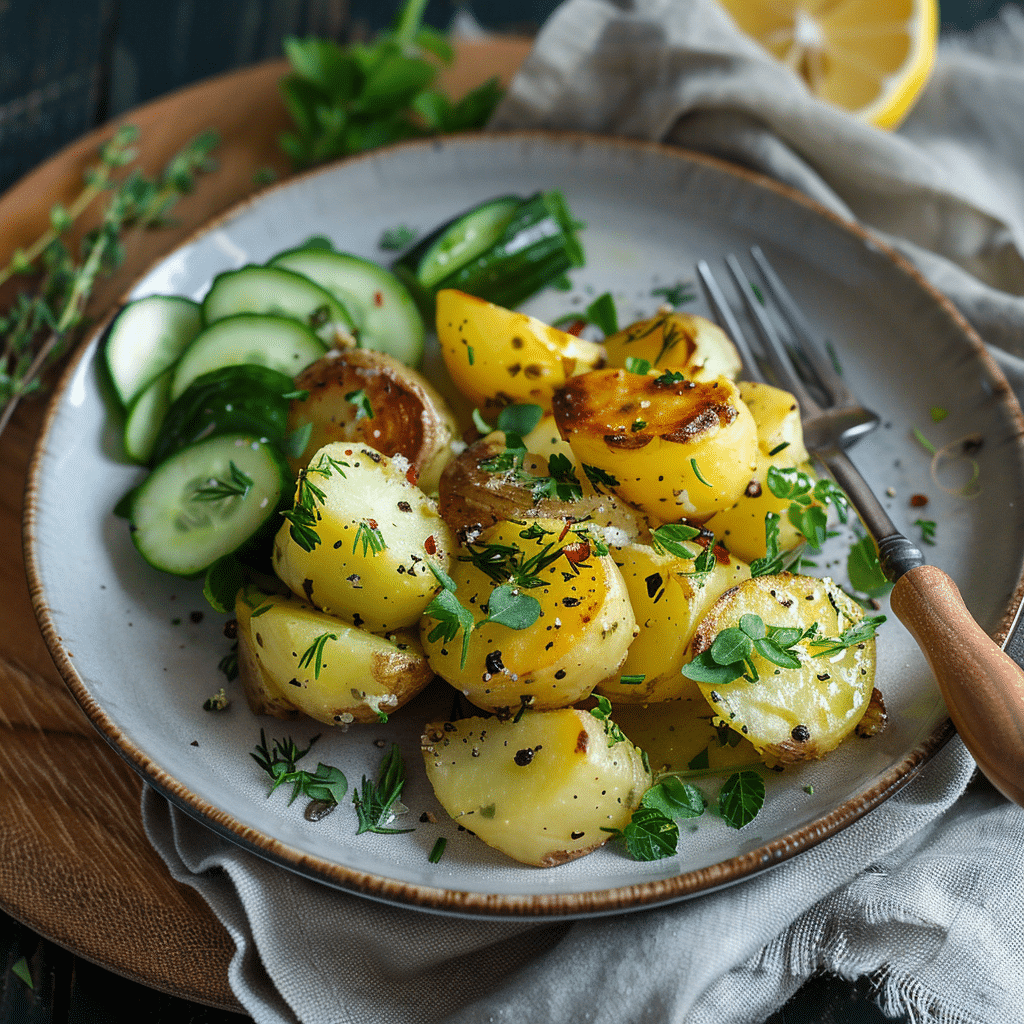
👉 Browse more Garlic Butter Beef Bites & Potatoes perfect for post-fast meals or clean weekly prep.
Final Thoughts from Emma
These potato fasting recipes prove you don’t need complexity to feel nourished. Just potatoes, a few pantry spices, and a little time in the oven or pot can give you warm, filling meals that support your goals and soothe your spirit. They’re perfect for gentle reset days or anytime your body wants a break.
✨ Ready to make a clean start? Try one of these recipes and tag me if you do I’d love to see your potato fasting creations. And don’t forget to follow me on Pinterest for more wholesome, family-friendly ideas every week!
Potato Fasting Recipes for Simple Reset Days
Equipment
- Oven
- Baking Sheet
- Parchment Paper
Ingredients
Main Ingredients
- 4 medium Yukon Gold potatoes diced
- 1 tsp smoked paprika
- 0.5 tsp garlic powder
- salt and pepper to taste
- fresh parsley chopped, optional
Instructions
- Preheat oven to 400°F (200°C).
- Toss potatoes in smoked paprika, garlic powder, salt, and pepper.
- Spread on a parchment-lined baking sheet in a single layer.
- Roast for 35–40 minutes, flipping halfway through for even crispness.
- Sprinkle with fresh parsley before serving, if desired.
